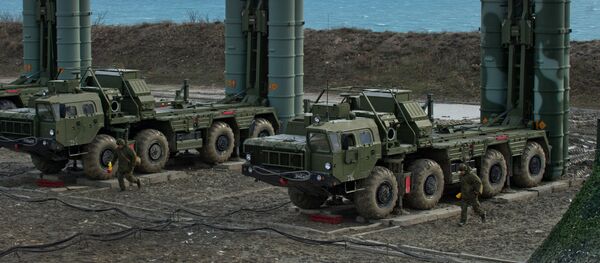"I think the [S-400] purchase will take place, but the government on the other hand will make some concessions to the US regarding the Patriot missile system sale," Yilmaz said.
According to the politician, the Turkish government is trying to strike a balance between the two superpowers by concurrently negotiating the deals with both Russia and the United States. He expressed hope that Ankara would act as an independent country with regard to the issue, however, he did not rule out that it might change its position on the S-400 purchase.
"This S-400 issue is one of the issues where both sides, the United States and Turkey, disagree on the matter. So I think this will continue as a problem between two countries but at the end of the day this circle of threats and possible pressure will not be helpful. Turkey is an independent state and can make any decision. But given the fact that government is always changing the position I am not in a position to secure that government will not change its position [on S-400]," he noted.
According to the politician, the main sticking point is not the air defense system itself, but a radar system, which Russia intends to place on Turkish soil along with the S-400.
"I think the matter is not only the S-400 missile system, more important reason is a radar system that Russia will place in Turkey after the [S-400] sale," he noted, adding that the United States feared that it could be somehow spotted by the Russian radars and some information could be leaked to the Russian intelligence.
In December, Russia and Turkey signed a loan agreement to supply S-400 air defense systems to Ankara. In late April, Turkish Foreign Minister Mevlut Cavusoglu said that the country was also considering purchasing the US-made Patriot missile defense system or other air defense systems if it was able to get a fair offer from its NATO allies. In the meantime, US Secretary of State Mike Pompeo said that the United States was seeking to discourage Turkey from contacts with the Russian defense sector, targeted by the US sanctions
In August 2017, US President Donald Trump signed the Countering America’s Adversaries Through Sanctions Act (CAATSA) into law. The legislation allows the United States to impose sanctions on entities and individuals that operate on behalf of Russia's defense or intelligence sectors, as well as those engaging in transactions with these sectors.



